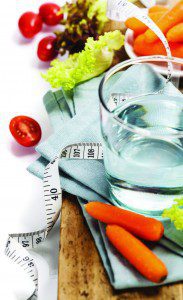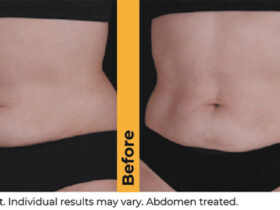 If you’re among the percentage of Americans with high cholesterol, you have probably received the standard diet guidelines: lose weight; decrease your intake of cholesterol-rich foods such as eggs, butter, cheese, and red meat; and consume fewer saturated fats from animal foods and hydrogenated oils.
If you’re among the percentage of Americans with high cholesterol, you have probably received the standard diet guidelines: lose weight; decrease your intake of cholesterol-rich foods such as eggs, butter, cheese, and red meat; and consume fewer saturated fats from animal foods and hydrogenated oils.
So what is cholesterol? Cholesterol is a fat-like substance found in your bloodstream or stored in your tissues. Your body produces cholesterol to build cell walls and to make hormones. Cholesterol comes from two main sources: it is made in your liver or it comes from food. Health problems may occur when there is too much cholesterol in your food, which in turn increases your chance for heart attack or stroke.
Being on a mostly plant-based diet could help decrease the amount of LDL cholesterol in your blood, the harmful type that leads to the heart attack or stroke. Some healthy food choices to help lower LDL are grains, such as oatmeal and brown rice; fruits and vegetables; beans, lentils, peas, and soybean products, such as tofu or tempeh; nuts and seeds; oils, such as olive or non-GMO canola; limited amounts of lean meats (preferably locally produced) such as chicken or turkey; and and “fatty” fish (full of omega-3), such as salmon, tuna, mackerel or sardines.
In addition to which foods you should increase in your diet, one should be aware of which foods to decrease. Such foods to avoid are high fat butters and milk, fried foods, fatty meat such as sausage; and most prepackaged snacks such as cookies, crackers, and bakery items – which are often full of hydrogenated oils.
Along with better food choices to lower cholesterol, healthy lifestyle choices may also aid in keeping your heart and arteries healthy. Regular physical activity such as walking, swimming, or aerobics for 30 minutes a day can help strengthen one’s cardiovascular system. Exercise will also help reduce stress, improve sleep, increase energy levels, and improve circulation. Endurance or weight training may also help improve muscle tone and strength for better balance and joint flexibility, as well as bone strength.
Reducing stress is a must for a healthy heart and cholesterol levels.
Stress can often be a hidden factor to poor health – despite healthy lifestyle choices such as eating a clean diet and good sleeping habits. In today’s world, many people have multiple demands each day, such as shouldering a huge workload, making ends meet and taking care of your family. Your body treats these so-called minor hassles as threats. As a result you may feel as if you’re constantly under assault. But you can fight back. You don’t have to let stress control your life.
In addition to healthy diet habits and exercise, other ways to reduce stress include practicing relaxation techniques such as meditation or prayer, or yoga; fostering healthy friendships with a sense of humor and lots of laughter; or seeking professional counseling when necessary. Visual techniques – such as vision boards – with positive life outcomes may also be very powerful for a stressed individual. Reading books by people with positive life experiences can also be extremely helpful in setting an individual on a path of hope, leading to less stress.









